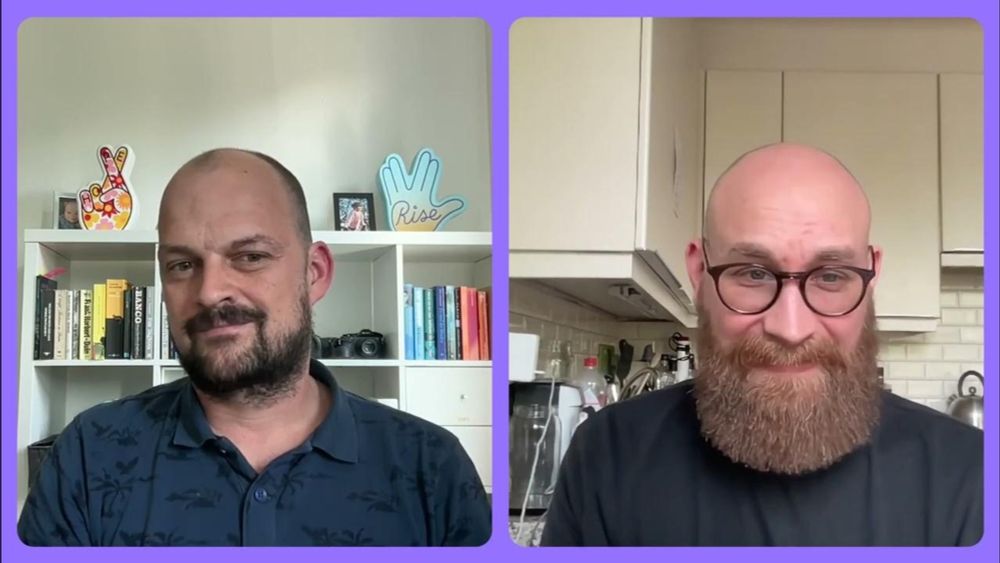We built the openESM database:
▶️60 openly available experience sampling datasets (16K+ participants, 740K+ obs.) in one place
▶️Harmonized (meta-)data, fully open-source software
▶️Filter & search all data, simply download via R/Python
Find out more:
🌐 openesmdata.org
📝 doi.org/10.31234/osf...
22.10.2025 19:34 —
👍 277
🔁 144
💬 14
📌 14

BIG ANNOUNCEMENT📣: I haven’t been this excited to be part of something new in 15 years… Thrilled to reveal the passion project I’ve been working on for the past year and a half!🙀🥳 (thread 👇)
15.10.2025 12:22 —
👍 492
🔁 185
💬 56
📌 61

Abstract
We investigate a phenomenon which we have experienced as common when dealing
with an assortment of Italian public and private institutions: people promise to exchange
high-quality goods and services, but then something goes wrong and the quality delivered
is lower than had been promised. While this is perceived as ‘cheating’ by outsiders,
insiders seem not only to adapt to, but to rely on this outcome. They do not resent
low-quality exchanges; in fact, they seem to resent high-quality ones, and are inclined
to put pressure on or avoid dealing with agents who deliver high quality. The equilibrium
among low-quality producers relies on an unusual preference ranking which differs from
that associated with the Prisoners’ Dilemma and similar games, whereby self-interested
rational agents prefer to dish out low quality in exchange for high quality. While equally
‘lazy’, agents in our low-quality worlds are oddly ‘pro-social’: for the advantage of
maximizing their raw self-interest, they prefer to receive low-quality goods and services,
provided that they too can in exchange deliver low quality without embarrassment. They
develop a set of oblique social norms to sustain their preferred equilibrium when threatened by the intrusion of high quality. We argue that high-quality collective outcomes are
endangered not only by self-interested individual defectors, but by ‘cartels’ of mutually
satisfied mediocrities.
Gambetta & Origgi on the LL Game, in which agents prefer to deliver and receive (!) low quality.
This paper is absolutely savage but also feels uncomfortably relevant to parts of academia outside of Italy 👀
diegogambetta.org/wp-content/u...
16.10.2025 14:08 —
👍 122
🔁 30
💬 5
📌 12

Research Fellow in Mental Health at UCL
Apply for the Research Fellow in Mental Health role on jobs.ac.uk, the top job board for academic positions in higher education. View details and apply now.
I'm hiring! ✨ Looking for a Research Fellow to study environmental factors that mitigate intergenerational transmission of mental health.
3-year post at UCL @uclbrainscience.bsky.social with great opportunities for training, collaboration & exciting science!
🔗 Apply: www.jobs.ac.uk/job/DOZ633/r...
10.10.2025 09:41 —
👍 17
🔁 15
💬 1
📌 3
YouTube video by JP
Philosophers described by Peep Show
oh, this is good.
18.06.2025 01:49 —
👍 47
🔁 18
💬 4
📌 0

🧠🧬🧑🤝🧑 New CoDE Lab study: Disorder-specific genetic effects drive the associations between psychopathology and cognitive functioning. Link to preprint: www.medrxiv.org/content/10.1... Led by the brilliant Wangjingyi Liao 🌟
A short thread summarising the study👇
10.06.2025 09:51 —
👍 6
🔁 5
💬 1
📌 0

How population stratification led to a decade of sensationally false genetic findings
Stratification makes environments look like genes
I wrote about how population stratification in genetic analyses led to a decade of false findings and almost certainly continues to bias emerging results. But we are starting to have statistical tools to sniff it out. A 🧵:
28.03.2025 21:53 —
👍 282
🔁 121
💬 7
📌 11
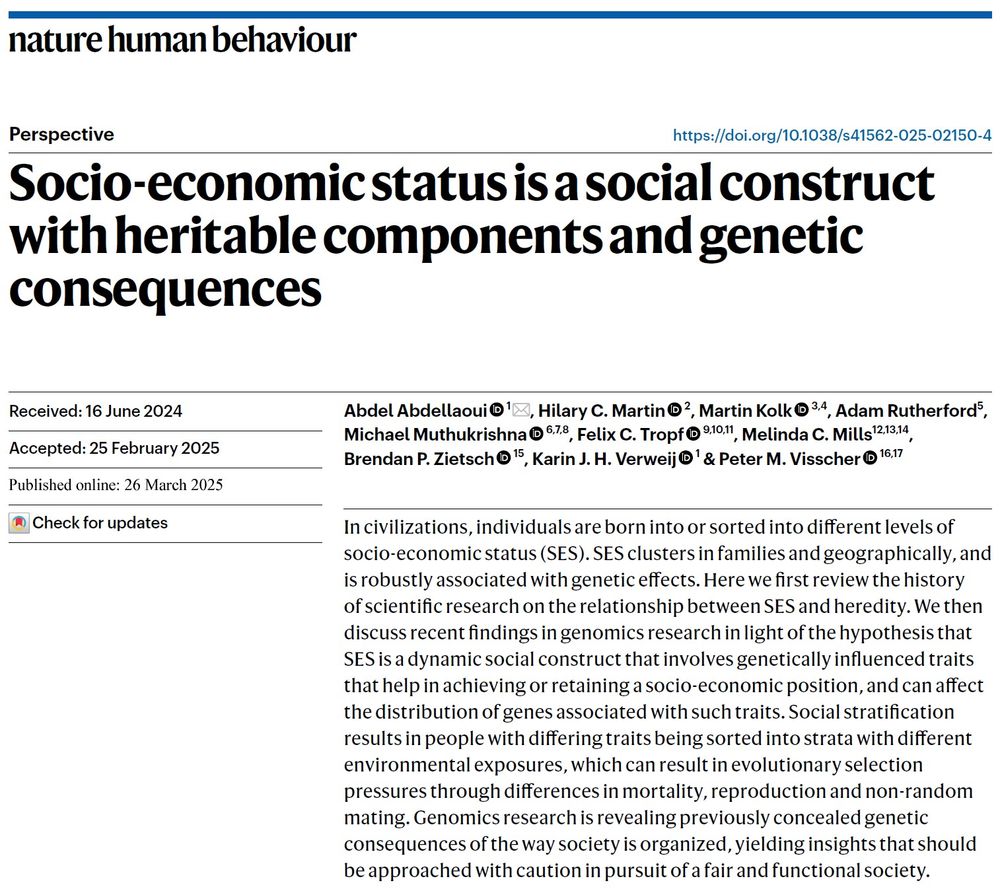
In every civilization, people end up sorted into levels of socio-economic status (SES). We explore the history, present, and future of scientific research on the complicated relationship between SES and DNA in @naturehumbehav.bsky.social💰🧬🎓
Link: rdcu.be/efacK
Thread below 👇🏽
26.03.2025 11:15 —
👍 229
🔁 83
💬 6
📌 18
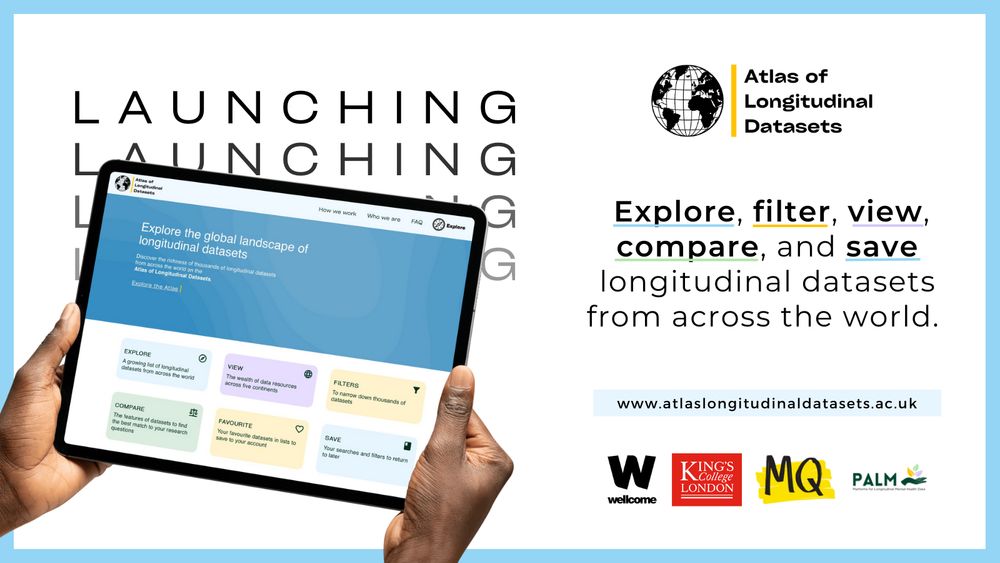
Explore, filter, view, compare and save longitudinal datasets from across the world on the Atlas of Longitudinal Datasets!
🎆It's launch day! Check out our brand new @wellcometrust.bsky.social funded platform to explore over 1,600 datasets from across the world. Find the Atlas of longitudinal datasets here -> atlaslongitudinaldatasets.ac.uk
@kingsioppn.bsky.social @mqmentalhealth.bsky.social
#AtlasLongitudinalDatasets
22.01.2025 09:32 —
👍 24
🔁 11
💬 1
📌 2
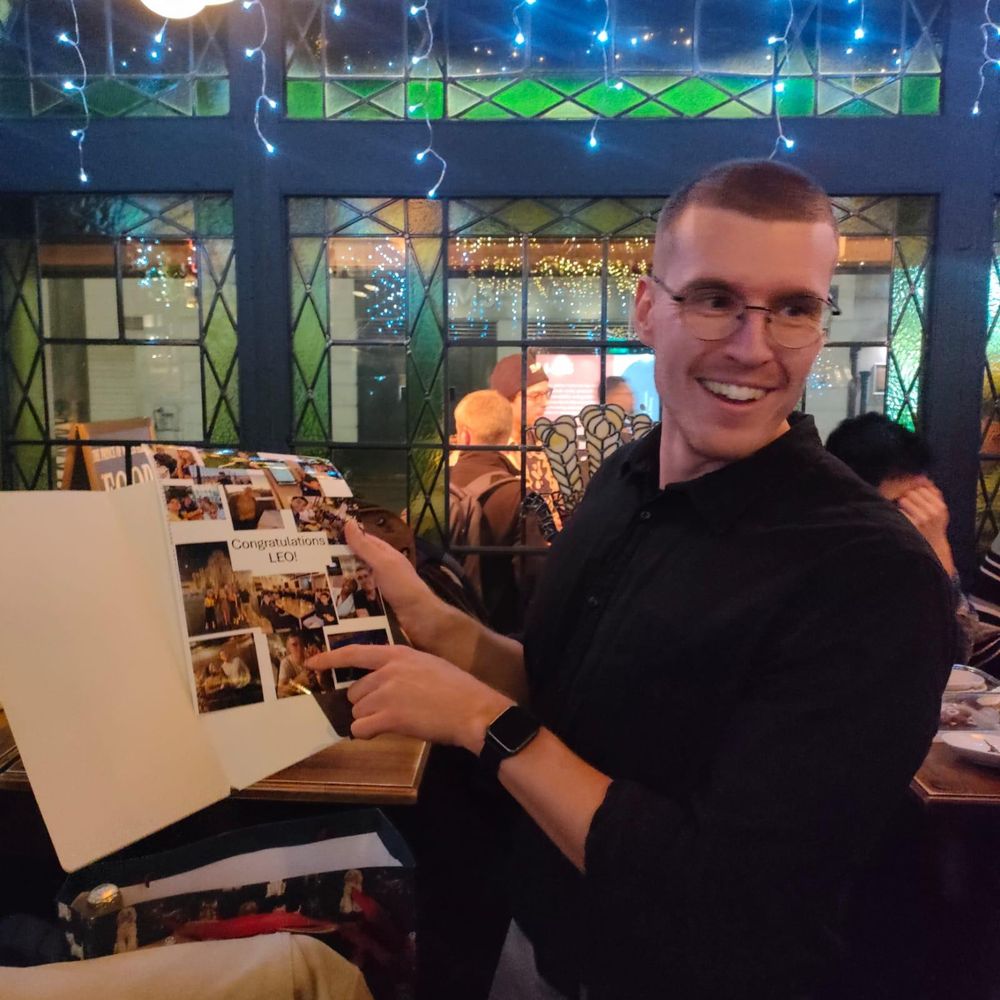
Viva celebrations
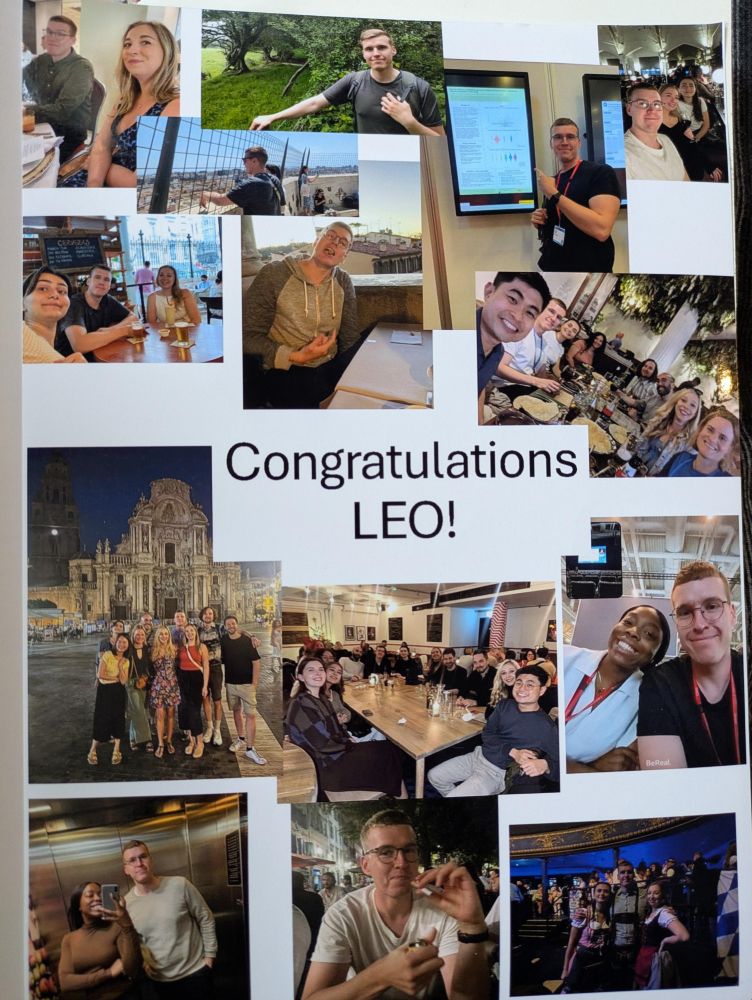
Collage of photos with my PhD friends

Dear Dr Frach,
I am pleased to inform you that your examiners have confirmed that you have been successful in your recent examination for the Doctor of Philosophy degree.
I guess I'm a doctor now??
Huge thanks to the best lab for all the memories over the last 4 years and for the sweetest messages 🥹
@giuliapiazza.bsky.social @emmarubyfrancis.bsky.social @andrealle.bsky.social @josejmorosoli.bsky.social @jessiebaldwin.bsky.social @kxlim.bsky.social
18.12.2024 10:47 —
👍 26
🔁 5
💬 7
📌 0
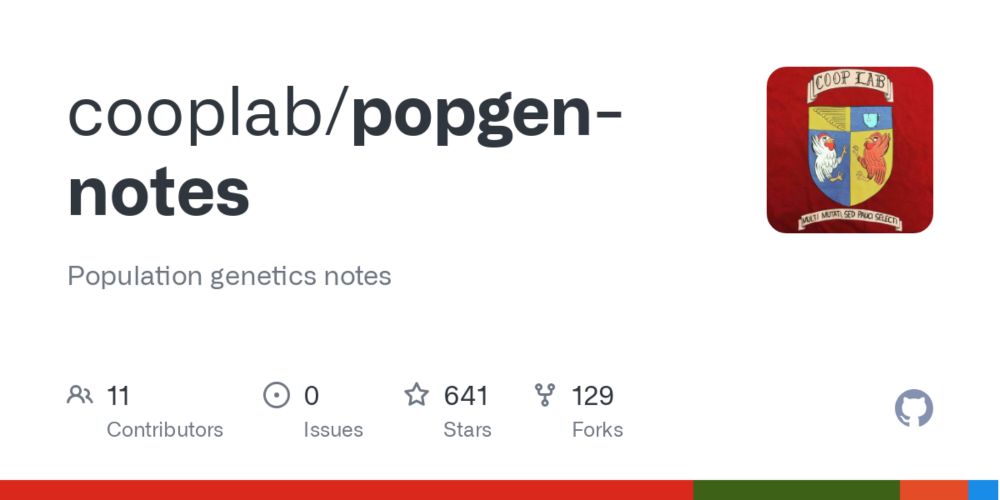
Releases · cooplab/popgen-notes
Population genetics notes. Contribute to cooplab/popgen-notes development by creating an account on GitHub.
Just posting this to #popgen
Here's a link to my notes on population & quantitative genetics:
github.com/cooplab/popg...
Hoping to extend it more after the winter holidays, as I'm just finishing up teaching the undergrad version of class.
19.11.2024 23:37 —
👍 361
🔁 158
💬 12
📌 1
.
@jonicoleman.bsky.social & I are looking for a bioinformatics/genetics PhD student in this joint MRC industry PhD scheme "Unveiling Disease-Causing DNA Repeats with Long-Read Sequencing" - a 4 year PhD funded by Oxford Nanopore & The UK MRC.
www.findaphd.com/phds/project... #MRCDTP25
26.09.2024 12:20 —
👍 5
🔁 4
💬 0
📌 1

Overcomplete models, with more latent than observed variables, model complexity that traditional methods (PCA, SEM & ICA) can't uncover. A tutorial how to fit over-complete models in MCMSEM. MAny potential applications in epi, neuro, genetics & Psych🧠📊 Check it out: rpubs.com/MichelNivard...
25.09.2024 13:15 —
👍 28
🔁 12
💬 3
📌 1
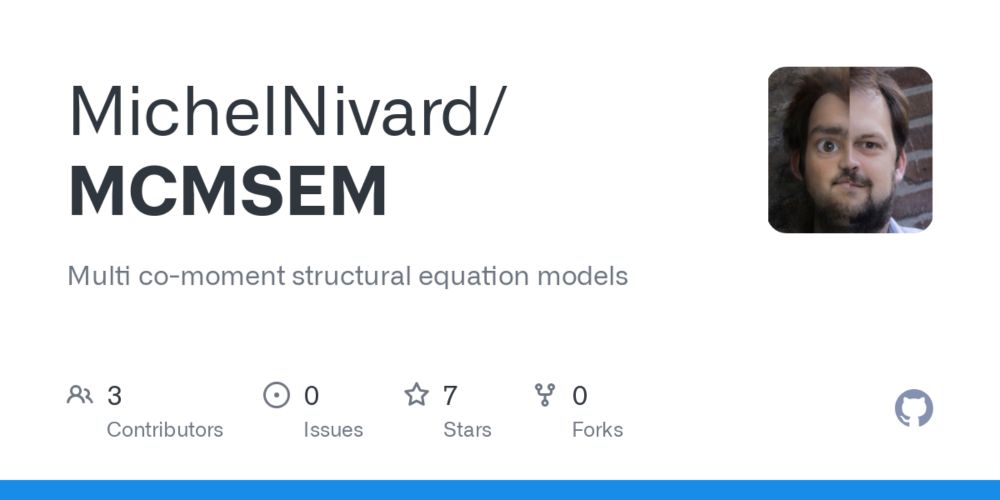
GitHub - MichelNivard/MCMSEM: Multi co-moment structural equation models
Multi co-moment structural equation models. Contribute to MichelNivard/MCMSEM development by creating an account on GitHub.
I pushed an update for MCMSEM. MCMSEM is an advanced extension of SEM (Developed with Zenab Tamimy and Matthijs van der Zee), which considers not just covariance but also co-skewness and co-kurtosis. It means you can test causal models! github.com/MichelNivard... follow examples in the thread 👇 1/?
12.09.2024 15:09 —
👍 28
🔁 13
💬 1
📌 1

Polygenic Scores and Networks of Psychopathology Symptoms
This cross-sectional study evaluates associations between polygenic scores with psychiatric disorder symptoms and relevant comorbid phenotypes.
How you model phenotypes really matters: "When associations between items and PGSs were not adjusted for all associations between network nodes ... PGSs were associated with a broader set of items than those identified by network analysis."
jamanetwork.com/journals/jam...
18.06.2024 01:02 —
👍 5
🔁 3
💬 1
📌 0

Social-Science Genomics: Progress, Challenges, and Future Directions
Founded in 1920, the NBER is a private, non-profit, non-partisan organization dedicated to conducting economic research and to disseminating research findings among academics, public policy makers, an...
Here's a pretty good summary of the state of the field for how genetic data can be applied in economics research. On top of tying much of the field together in a consistent framework, there are also a handful of novel theoretical results. Excited to see this out!
t.co/d7g1SEEB6C
09.05.2024 17:59 —
👍 8
🔁 7
💬 1
📌 0
I had a chat with Eiko Fried about a new GWAS of Depression in 685.000 cases and 4.3 million controls... That's like all of Denmark? Here is the GWAS: https:...
is this an accidental Podcast? Eiko Fried & Michel Nivard discuss a new GWAS of depression preprint
I have been (foolishly?) searching for peak 2015-2017 twitter "science on socials" magic... In an experiment to recapture that excitement, I talked to @eikofried.bsky.social , in what might veer into podcast territory(?), about a new GWAS of Depression (N > 5 million) www.youtube.com/watch?v=vHvB...
07.05.2024 20:16 —
👍 20
🔁 13
💬 1
📌 1

GWAS: endgame Vol. 1
What will the first of the last GWAS look like, whats after GWAS?
I kicked off a series of posts on the "end of GWAS" . It'll be 5 posts, an intro and posts on GWAS of Height, depression, education and schizophrenia, each ample size > 500.000 individuals. I wrote these between jobs to think about whats next for my field & me nivard.substack.com/p/gwas-endga...
04.04.2024 16:27 —
👍 19
🔁 6
💬 4
📌 0
Our paper on genetic transmission and genetic nurture effects on conduct problems is now published in Molecular Psychiatry! This version includes new analyses www.nature.com/articles/s41... a 🧵 1/6
16.01.2024 12:14 —
👍 12
🔁 4
💬 1
📌 0
We ( @torkildl.bsky.social and @eivindy.bsky.social @tibaier.bsky.social & @kph3k.bsky.social also others not on here) have a paper out studying the origins of widely observed gene-environment correlation for educational outcomes. Paper: rdcu.be/dv1sp let me walk you trough it in a thread 1/?
15.01.2024 15:39 —
👍 38
🔁 28
💬 2
📌 1

1/22
Our new paper led by Ashley Watts (w Ashley Greene & @wesbonifay.bsky.social) is now published; I view it as the first critical evaluation of the statistical and theoretical p-factor & resulting literature. Here a brief overview of the core arguments in the paper.
08.01.2024 11:26 —
👍 45
🔁 21
💬 2
📌 1
Most scientists don’t enjoy writing grants. Here’s how to change that
Specialists share how to make the experience more enjoyable and foster a sense of belonging. Specialists share how to make the experience more enjoyable and foster a sense of belonging.
Some useful advice here, but isn't the main reason everyone hates grant writing the very low success rate? A system which requires so much wasted effort just doesn't seem efficient
Most scientists don’t enjoy writing grants. Here’s how to change that www.nature.com/articles/d41...
12.12.2023 09:50 —
👍 33
🔁 5
💬 1
📌 2
OSF
My first post here! advertising our working paper on the 'Intergenerational transmission of polygenic predisposition for neuropsychiatric traits on emotional and behavioural difficulties in childhood'
osf.io/preprints/ps... - feedback is welcome!
08.12.2023 06:12 —
👍 11
🔁 3
💬 0
📌 0






















